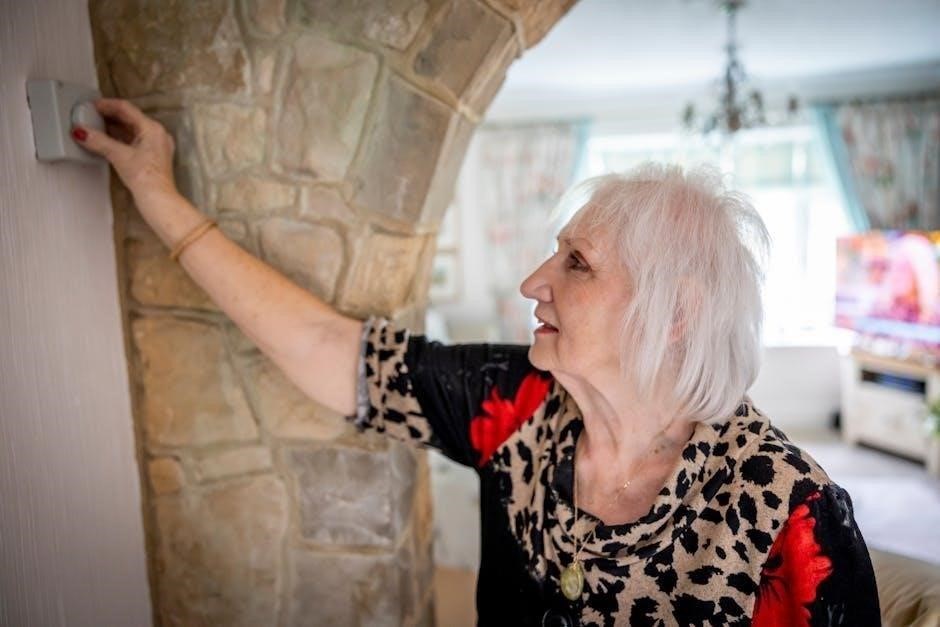theology of the body pdf
Pope John Paul II’s Theology of the Body, delivered between 1979-1984, explores human dignity, sexuality, and marriage, offering a biblical vision of the body’s sacramental significance.
1.1. Overview of the Theology of the Body
The Theology of the Body, a series of 129 addresses by Pope John Paul II from 1979 to 1984, explores the dignity of the human person, the sacramentality of the body, and the purpose of human sexuality. Rooted in biblical teachings, it emphasizes the body’s role in revealing God’s plan for humanity. This teaching bridges theology and human experience, offering insights into love, marriage, and redemption. It underscores the body’s sacredness and its connection to divine love, providing a profound vision of human existence and relationships, grounded in Scripture and Catholic tradition.
1.2. Historical Context and Significance
Pope John Paul II’s Theology of the Body emerged in the late 20th century, addressing cultural shifts and theological questions about human sexuality. Delivered during his Wednesday catecheses from 1979 to 1984, these teachings provided a response to modern secularism and relativism. Rooted in biblical anthropology, they drew from early Church Fathers, Vatican II, and the Pope’s personal philosophical insights. This series marked a significant shift in Catholic teaching, offering a comprehensive vision of human dignity, love, and the body’s sacramental role, influencing both theology and pastoral care globally.
1.3. Purpose and Scope of the Teachings
The purpose of John Paul II’s Theology of the Body was to provide a comprehensive understanding of human sexuality and dignity, rooted in Scripture and Tradition. It aimed to counter modern misconceptions about the body and sexuality, emphasizing their sacramental and relational dimensions. The teachings spanned 129 addresses, exploring themes from creation to redemption, marriage, and celibacy. By integrating theology, philosophy, and anthropology, John Paul II offered a vision of human love as a reflection of divine love, intended to transform both individuals and society, fostering a culture of life and authentic human flourishing.

Key Themes in the Theology of the Body
Central themes include human dignity, the sacramentality of the body, and the divine plan for sexuality, love, and relationships, emphasizing their profound theological and spiritual significance.
2.1. The Dignity of the Human Person
The dignity of the human person is rooted in being created in God’s image (Genesis 1:27), emphasizing the intrinsic value of every individual. John Paul II highlights that this dignity is inherent and inalienable, not contingent on external factors. The body, as a part of the human person, shares in this dignity, revealing God’s divine plan. This understanding rejects dualisms that separate body and soul, affirming their unity. The human person is called to live in communion, reflecting God’s love through relationships and self-gift. This theme underscores the sacredness of human life and sexuality, central to the Theology of the Body.

2.2. The Sacramentality of the Body

The sacramentality of the body is a central theme, emphasizing that the human body reveals God’s divine plan and love. John Paul II teaches that the body is not merely biological but a sacred instrument of divine communication. Through marriage, the body becomes a sacrament, symbolizing the union between Christ and the Church. This nuptial meaning highlights the body’s role in expressing love and commitment, reflecting God’s eternal plan. The body’s sacramentality underscores its dignity and purpose in revealing divine truth and fostering communion. This understanding elevates human relationships to a spiritual and sacramental level.
2.3. Human Sexuality and Its Purpose
Human sexuality is a divine gift, integral to human nature. In the Theology of the Body, it is seen as a reflection of God’s love and creativity. Sexuality is not merely for procreation or pleasure but for expressing love, union, and the image of God. The body, as a sacramental sign, reveals the mystery of divine love. This understanding calls for a holistic view of sexuality, emphasizing its role in fostering authentic relationships and spiritual growth. It highlights the dignity of the human person and the sacredness of intimate love within God’s plan.
2.4. The Sacrament of Marriage
The Sacrament of Marriage is a profound expression of God’s love, reflecting the union between Christ and the Church. Rooted in biblical teaching, it signifies the sacred bond between husband and wife as a covenant of love and fidelity. Marriage, as a sacrament, transforms the couple, drawing them into the divine life and calling them to holiness. The union of two in one flesh mirrors the unity of the Trinity, emphasizing the dignity of human love within God’s plan. This sacrament not only unites the couple but also forms the foundation of the family, the domestic church, where faith is nurtured and lived.
2.5. Redemption and the Body
Christ’s redemption restores the body’s dignity, transcending the consequences of sin. Through His obedience and self-offering on the Cross, Christ demonstrates trust in God’s plan, countering Adam and Eve’s distrust. The Resurrection reveals the body’s ultimate destiny, transformed and glorified. Redemption heals the divide between spirit and body, affirming the body’s role in God’s plan. John Paul II emphasizes that the body, as an integral part of the human person, shares in the redemption won by Christ, pointing to the ultimate resurrection of the body in eternal life.

Biblical Foundations of the Theology of the Body
The Theology of the Body is rooted in Scripture, particularly Genesis’ creation accounts, Christ’s redemption of the body, and Paul’s teachings on the body as a temple of the Holy Spirit.
3.1. Creation Accounts in Genesis
The Theology of the Body is deeply rooted in the biblical creation accounts in Genesis. These passages reveal that humans are created in God’s image (Genesis 1:27), emphasizing the inherent dignity of the body. The creation of man and woman as complementary beings highlights the theological significance of masculinity and femininity. The account of Adam and Eve in Genesis 2 underscores the vocation of humans to love and the unity of the body and soul. These teachings form the foundation for understanding human sexuality and relationships as part of God’s divine plan.
3.2. Jesus Christ and the Redemption of the Body
Jesus Christ’s life, death, and resurrection are central to the redemption of the body. His obedience to God’s plan demonstrates trust in divine love, contrasting with Adam and Eve’s disobedience. Christ’s self-offering on the Cross redeems humanity, restoring the body’s dignity and purpose. The Resurrection highlights the body’s eternal significance, revealing its capacity for glorification. Through this redemption, the body is not merely a temporal vessel but a vital part of the divine plan, called to share in God’s eternal life and love. This theological perspective transforms the understanding of human sexuality and the body’s role in salvation history.
3.3. Pauline Teachings on the Body
St. Paul’s writings emphasize the body’s sacredness and its role in God’s plan. He describes the body as a temple of the Holy Spirit, highlighting its dignity and the call to live chastely. Paul’s teachings link the body to the mystery of Christ, stressing unity and self-giving love. His letters, such as 1 Corinthians, address the body’s role in worship and moral living, urging believers to glorify God with their bodies. These teachings align with the Theology of the Body, reinforcing the idea that the body is integral to understanding God’s plan for humanity and its ultimate redemption through Christ.
3.4. The Role of the Holy Spirit in the Body
The Holy Spirit plays a vital role in the Theology of the Body by transforming the body into a temple of God. Through the Spirit, the body becomes a vessel for divine life, reflecting the dignity of the human person. The Spirit animates the body, enabling it to participate in Christ’s redemptive work. By imparting gifts like love, chastity, and self-control, the Holy Spirit guides individuals to live out their bodily existence in harmony with God’s plan. This divine indwelling emphasizes the body’s sacredness and its role in expressing God’s love and truth in the world.

The Influence of John Paul II’s Teachings
John Paul II’s Theology of the Body profoundly shaped Catholic doctrine, offering a revolutionary perspective on human sexuality, marriage, and the dignity of the body, influencing modern thought.
4.1. The Development of the Theology of the Body
John Paul II’s Theology of the Body emerged from 129 catechetical addresses delivered between 1979 and 1984. These teachings, part of his Wednesday audiences, explored human sexuality, dignity, and marriage through a biblical lens. The series laid out a vision of the body as a sacramental sign of God’s love, rooted in Scripture and tradition. Drawing from his dissertation on St. John of the Cross, John Paul II integrated theology, philosophy, and personalist thought. His reflections emphasized the body’s role in revealing God’s plan for humanity, offering a profound and comprehensive understanding of human nature and relationships.
4.2. Key Influences on John Paul II’s Thought
John Paul II’s Theology of the Body was shaped by various intellectual and spiritual influences. His dissertation on St. John of the Cross laid a foundation for understanding human love and spirituality. The thought of St. Thomas Aquinas, particularly on the integration of faith and reason, also played a significant role. Additionally, John Paul II’s personalist philosophy, emphasizing the dignity and uniqueness of the human person, deeply informed his teachings. His experiences as a young priest and bishop further enriched his insights into human relationships and sexuality, blending theological depth with pastoral sensitivity.
4.3. The Impact on Catholic Theology and Doctrine
The Theology of the Body profoundly shaped Catholic theology and doctrine, offering a renewed understanding of human dignity, sexuality, and marriage. It emphasized the bodily dimension of salvation, integrating faith and reason. This teaching countered dualistic views of the body and spirit, reaffirming the body’s sacramental role. It influenced Church teachings on family, life, and love, providing a biblical foundation for Catholic moral theology. Theology of the Body has become a cornerstone in Catholic education and pastoral care, inspiring a deeper appreciation of the body’s sanctity and its role in God’s plan.
4.4. Reception and Implementation in the Church
The Theology of the Body has been widely embraced, transforming Catholic education and pastoral care. Study groups and initiatives worldwide promote its teachings, fostering a deeper understanding of human dignity and sexuality. The Church has integrated these teachings into marriage preparation, youth ministry, and family life programs, emphasizing chastity and fidelity. Its universal appeal has inspired a renewed focus on the sacramental nature of the body, enriching the Church’s moral and spiritual guidance. This doctrine continues to shape Catholic thought and practice, offering a vision of love and relationships rooted in divine design.

Theology of the Body and Human Relationships
Theology of the Body emphasizes the dignity of the human person, fostering deeper understanding of love, intimacy, and family. It calls for a vocation to chastity.
5.1. The Nature of Love and Intimacy
The Theology of the Body reveals love as a self-giving act, rooted in the dignity of the human person. It emphasizes that true intimacy reflects God’s love, uniting body and soul. Marriage, as a sacrament, mirrors the covenantal love between Christ and the Church, fostering unity and openness to life. This teaching highlights the transformative power of love, calling individuals to embrace chastity and fidelity, ensuring that human relationships are lived as a gift of self, not a taking for self.
5.2. The Role of the Family in Society
The family, as the domestic Church, plays a vital role in society by nurturing love, faith, and values. It is the first school of humanity, where individuals learn to live in communion and mutual respect. The Theology of the Body underscores the family’s mission to witness God’s love and reflect the divine plan for humanity. Through the sacrament of marriage, families become a source of grace and a beacon of hope, fostering a culture of life and dignity. The family’s health profoundly impacts societal well-being, making it essential for building a harmonious and virtuous community.
5.3. The Vocation to Chastity
The vocation to chastity, rooted in the Theology of the Body, emphasizes the integration of human sexuality with love, respect, and self-giving. It is a universal call to live sexuality in a way that honors God and the dignity of others. Chastity is not merely abstention but a virtue that transforms relationships, fostering authentic love and freedom. It applies to all states of life, whether single, married, or consecrated, guiding individuals to embrace their sexuality as a gift from God. This vocation is essential for living out the Christian call to holiness and loving others as Christ loves them.
5.4. The Importance of Fidelity and Commitment
Fidelity and commitment are cornerstones of the Theology of the Body, reflecting God’s faithful love. They ensure that relationships are built on trust, mutual respect, and enduring devotion. Marriage, as a sacrament, exemplifies this fidelity, mirroring Christ’s unwavering commitment to the Church. Fidelity nurtures intimacy and stability, allowing love to flourish. It is a covenantal promise that transcends fleeting emotions, grounding relationships in sacrificial love and lifelong dedication. Through fidelity, individuals embody the divine plan for human love, fostering a culture of enduring and selfless commitment.

Theology of the Body and Modern Society
The Theology of the Body addresses modern societal challenges by affirming the dignity of the human person and the sacredness of the body, offering a counter-cultural vision of love, sexuality, and relationships rooted in divine design. It challenges secularism by emphasizing the body’s role in revealing God’s plan for humanity, fostering a deeper understanding of human identity and purpose in contemporary culture.
6.1. Challenges to the Theology of the Body in the Modern World
The Theology of the Body faces challenges in modern society, where secularism, individualism, and relativism often contradict its teachings. The sexual revolution and cultural norms emphasizing personal autonomy over sacramental and moral truths create resistance. Many struggle to embrace the idea of the body as a sacramental sign of God’s love, particularly in a world that frequently reduces sexuality to self-fulfillment rather than mutual gift and procreation. These challenges highlight the need for a renewed understanding of human dignity and the body’s role in revealing God’s plan for humanity.
6.2. The Role of the Body in Contemporary Culture
In contemporary culture, the body is often viewed as a tool for self-expression and personal fulfillment, frequently disconnected from its deeper theological significance. Modern society emphasizes bodily autonomy and individualism, sometimes reducing the body to a means of pleasure or identity. In contrast, the Theology of the Body highlights the body’s role as a sacred sign of God’s love and a vessel for spiritual growth. This tension between cultural perspectives and the body’s theological meaning underscores the need to reclaim the body’s dignity and its role in expressing divine truth and fostering human connections.
6.3. The Theology of the Body as a Response to Secularism
The Theology of the Body offers a profound response to secularism by reaffirming the body’s dignity and sacredness. In a culture that often reduces the body to mere physicality or personal autonomy, this teaching emphasizes its creation in God’s image and its role in expressing divine love and truth. By grounding human sexuality and relationships in biblical and sacramental truths, the Theology of the Body challenges secular ideologies that separate the body from its spiritual and moral dimensions, providing a holistic vision of the human person and their ultimate vocation to love and communion.
6.4. The Body as a Source of Moral and Spiritual Guidance

The body, as a creation of God, serves as a source of moral and spiritual guidance, revealing divine truth and purpose. Through its sacramental nature, the body expresses God’s plan for humanity, offering insights into love, unity, and self-gift. By understanding the body’s inherent dignity and its role in expressing divine love, individuals can discern moral truths and spiritual principles. The Theology of the Body encourages a holistic view of human existence, integrating physical and spiritual dimensions to guide ethical decisions and foster a deeper relationship with God and others.

Practical Applications of the Theology of the Body
Theology of the Body offers practical wisdom for education, ministry, and personal spirituality, guiding individuals in understanding human dignity, sexuality, and relationships through a lens of divine purpose.
7.1. Education and Formation
The Theology of the Body provides a foundation for educating individuals about human dignity, sexuality, and relationships. It emphasizes the importance of moral and spiritual formation, encouraging a deeper understanding of God’s plan for the body. Educational programs and study groups worldwide use these teachings to foster a holistic view of human personhood. Resources like study guides and institute materials help simplify complex theological concepts, making them accessible for all. This education fosters a culture of respect, love, and chastity, empowering individuals to live out their vocations with integrity and purpose.
7.2. Pastoral Care and Ministry
The Theology of the Body equips ministers and pastoral workers with a profound understanding of human dignity and sexuality, enabling compassionate care. It provides tools to address modern challenges, fostering healing and holiness. Resources like study guides and retreat materials help integrate these teachings into parish life. Theology of the Body institutes and conferences train clergy and laity to apply these truths effectively. This approach emphasizes the body’s role in revealing God’s love, offering a holistic vision for pastoral care that respects human dignity and promotes moral and spiritual growth.
7.3. Personal Spirituality and Prayer
The Theology of the Body enriches personal spirituality by revealing the body’s dignity as a reflection of God’s love. Prayer practices, such as meditation on biblical creation accounts, deepen this understanding. John Paul II’s teachings encourage individuals to see their bodies as temples of the Holy Spirit, fostering a prayerful appreciation of their purpose. Chastity, as a virtue, aligns with this spirituality, helping individuals integrate their faith into daily life; Through prayer, believers can seek divine light on human sexuality and relationships, fostering a deeper union with God and others.
7.4. Social Justice and the Body
The Theology of the Body emphasizes the intrinsic dignity of every person, calling for a commitment to social justice that respects and upholds human rights. It encourages believers to recognize the body as a vessel for serving others, fostering solidarity and compassion. By advocating for the marginalized and vulnerable, individuals embody Christ’s love in the world. The teachings inspire a proactive approach to addressing systemic injustices, ensuring that all bodies are treated with reverence and care, reflecting God’s universal love and the sacredness of human life.
The Theology of the Body remains a timeless and universal guide, offering profound insights into human dignity, love, and sexuality. Its relevance continues to inspire future generations.
8.1. The Timeless Relevance of the Theology of the Body
The Theology of the Body, rooted in biblical teachings, remains universally relevant, addressing fundamental questions about human dignity, love, and sexuality. Its profound insights, drawn from Scripture and lived experience, continue to resonate across cultures and generations. By emphasizing the sacramental nature of the body and the divine plan for human relationships, it provides a compelling vision of love and redemption. This teaching not only illuminates the connection between the human and divine but also offers timeless guidance for navigating modern challenges, ensuring its enduring significance in both personal and communal life.
8.2. The Ongoing Development of the Teachings
The Theology of the Body continues to evolve as scholars and theologians explore its implications. Building on John Paul II’s foundation, contemporary thinkers adapt these teachings to address modern issues like gender identity and technology’s impact on human relationships. This dynamic development ensures the theology remains a vital tool for understanding human dignity and sexuality in a changing world. By engaging with new challenges, the teachings grow, maintaining their relevance and offering fresh insights into the human condition and the divine plan for bodily existence.
8.3. The Universal Appeal of the Theology of the Body
The Theology of the Body resonates universally, transcending cultures and belief systems. Rooted in biblical reflections, it speaks to fundamental human experiences of love, dignity, and relationships. Its exploration of human sexuality and the body’s sacramental nature connects with people across diverse backgrounds. By emphasizing the intrinsic value of every person, it offers a vision of human flourishing that appeals to both religious and secular audiences. This timeless message continues to inspire dialogue and reflection, making it a cornerstone for understanding the human condition and God’s plan for bodily existence.
8.4. The Call to Live Out the Theology of the Body
The Theology of the Body invites individuals to embrace a life rooted in dignity, love, and respect for the body as a gift from God. It calls for integrating faith into daily relationships, sexuality, and family life. By living out this teaching, people are empowered to uphold the sanctity of marriage and the vocation to love selflessly. The universal appeal of the Theology of the Body encourages everyone, regardless of their state in life, to embody its truths in their choices and actions, fostering a culture of life and authentic human flourishing.
